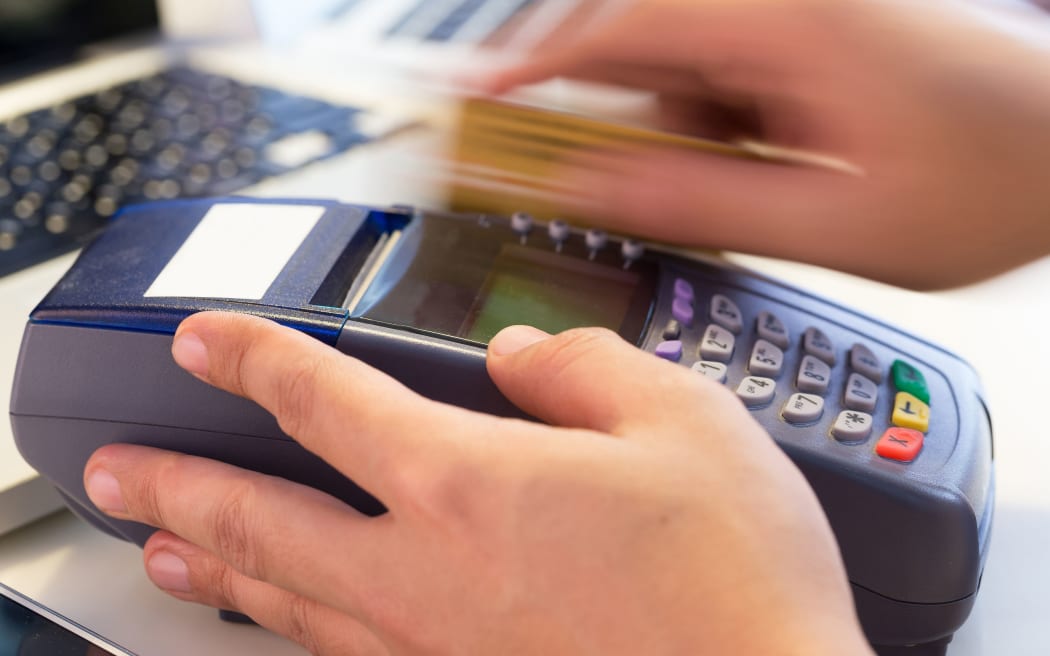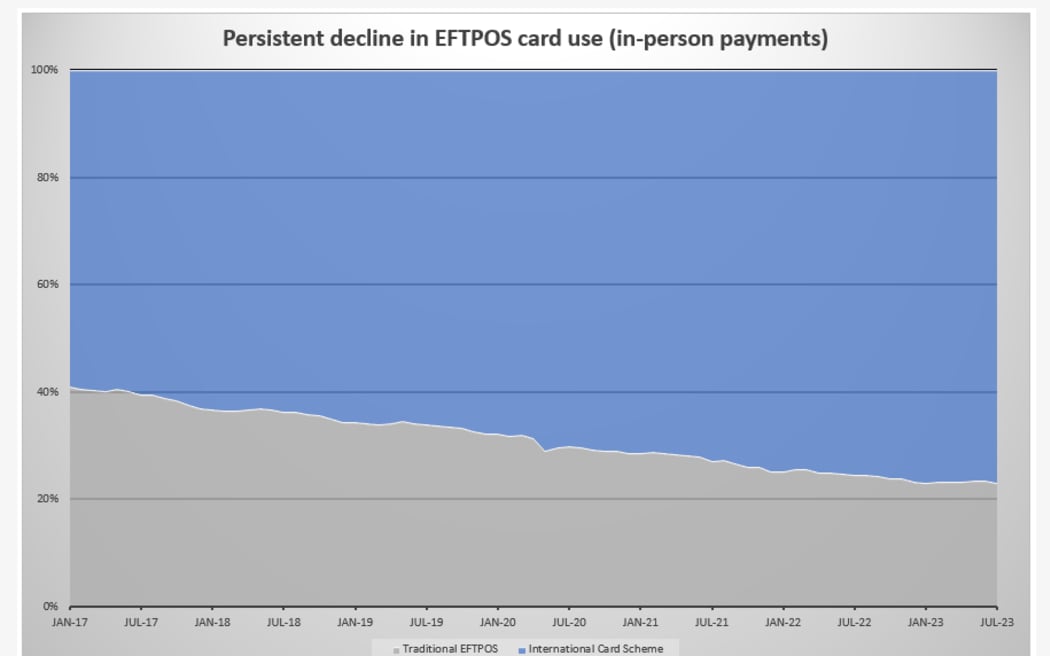
An EFTPOS card being swiped at a terminal. Photo: 123RF
Eftpos cards - widely used to make payments in New Zealand for more than 30 years - are plummeting in popularity.
The thought of them disappearing altogether is concerning for some consumers who want to avoid surcharges.
But while the future of Eftpos is up in the air, new and cheap forms of payment may also be on the horizon.
Kāpiti resident Peggy Wood was just getting her head around emails.
"I'm just about to turn 70," she said. "My children dragged me into the 21st century with emails and internet, and I'm okay with those because they're simple and I can take my time."
Wood was very comfortable using her Eftpos card when out and about buying things. But she said her bank had been pushing her towards other forms of payment.
"I get a little bit upset because I had an email from my bank. They said, 'You know, you don't have to worry about the plastic - just use your Apple or your smartphone'."
But Wood did not own a smartphone, and the thought of getting one did not appeal.
Other sorts of payment cards like Visa or Mastercard often came with off-putting surcharges.
Wood was scared that Eftpos could go the same way as chequebooks, leaving even fewer forms of payment that did not incur a fee.
"Eftpos was always a backup for companies that said, 'We don't accept cheques'. I'd say, 'Ooh, well could I Eftpos it?' They'd say, 'Certainly'.
"But if they get rid of Eftpos, what have we got as a backup?"
The Commerce Commission was also concerned with this question. Chairperson John Small said the decline of the traditional Eftpos card had come about as consumer habits tended towards more convenience.

Eftpos card use has roughly halved over the course of the last six years. Photo: Supplied
"More people want to just tap," he said. "Your debit card will let you do that, or if you want to buy something on the internet, your scheme debit card will let you do that. Your Eftpos card won't."
Small said banks also pushed Visa or Mastercard onto customers because of the revenue they received from the transactions.
So even though it was normally the lowest-cost payment option, Eftpos was losing favour.
In January 2017, Eftpos cards were used for about 40 percent of in-person payments. By July 2023, its share had fallen to about 22 percent, with international card schemes like Visa and Mastercard accounting for the rest.
Small said something else needed to come along to ensure the payments market remained competitive. He said the answer could be bank transfers.
"Other countries are bounding ahead with fast, phone-based systems that are really cheap. You go around the developing world and you see people paying peer-to-peer with their phones at virtually no cost, instantly."
At the moment, a bank transfer involved knowing a long string of numbers for the recipient's bank account. Get one number wrong, and money could be sent to the wrong person. Typing in a recipient's details could also be a time-consuming process.
However, the Commerce Commission was looking to support innovation that could see bank transfers become just as easy as using a contactless debit or credit card, using wireless connectivity, QR codes, or people's phone numbers.
"It's like internet banking on steroids," Small said.
It was a space that Worldline, the operator of the Eftpos network, had already been exploring.
Head of public affairs Julia Nicol said the fall of Eftpos in New Zealand could be a cause for concern.
"Eftpos was always something that New Zealand had, and it's its own product, and it provided an alternative to the international card schemes."
But she said the shift away from Eftpos was only a problem if nothing better came along to take its place.
"Eftpos is old technology. It's a really simple card: You can't use it online; you can't use it contactlessly.
"But it would be great if we could jump past cards and go to a new world where an Eftpos-like product was issued to your phone and then you could use that contactlessly."
Nicol said the Eftpos network - also used for debit card payments when the card was inserted rather than tapped - would be around for as long as it was needed. But eventually, consumer choice would determine its future.
"It does get to a point where you're thinking, can New Zealand sustain paying for a very expensive switch if very few people are using it?"
And Nicol said with new and improved technology on its way - including the ability to load discount schemes like the SuperGold Card directly onto payment platforms - even consumers as hesitant as Peggy Wood may want to get on board.

